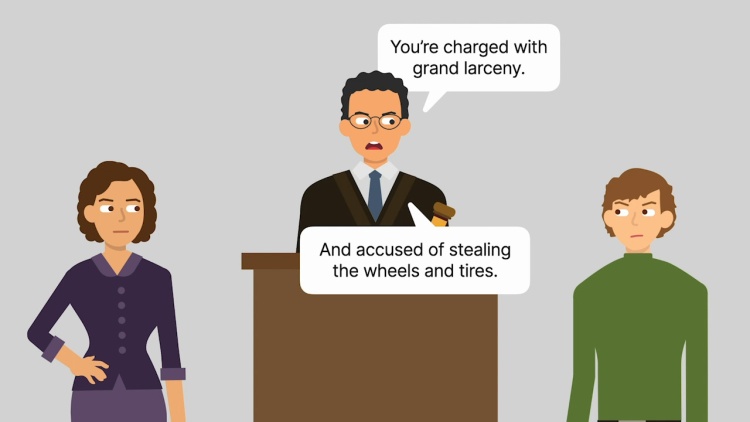People v. Robinson
New York Court of Appeals
60 N.Y.2d 982 (1983)
- Written by Samantha Arena, JD
Facts
Police found a stolen car near the dealership from which the car had been taken the previous night. The car was missing its wheels and tires. Hurley Robinson (defendant) was arrested after the police found his fingerprints on the car. Robinson said that he had not stolen the car but, despite knowing his friends had stolen the car the night before, had helped to remove the wheels and tires. Robinson was accused of stealing the wheels and tires and was indicted for larceny in the third degree. According to New York’s criminal law, a defendant commits larceny when, with the intent to deprive another of property, the defendant wrongfully takes or withholds property from the rightful owner. At trial, the state did not present any evidence tending to show that Robinson had participated in the car theft. The jury found Robinson guilty. The appellate division reversed the conviction, concluding that while Robinson might have been guilty of criminal possession of stolen property, the evidence presented did not establish the commission of a larceny. The appellate division held that the larceny of the car, including the wheels and tires, was complete when Robinson’s friends took control of the car from the dealership. The state appealed.
Rule of Law
Issue
Holding and Reasoning (Memorandum)
Dissent (Meyer, J.)
What to do next…
Here's why 905,000 law students have relied on our case briefs:
- Written by law professors and practitioners, not other law students. 47,100 briefs, keyed to 995 casebooks. Top-notch customer support.
- The right amount of information, includes the facts, issues, rule of law, holding and reasoning, and any concurrences and dissents.
- Access in your classes, works on your mobile and tablet. Massive library of related video lessons and high quality multiple-choice questions.
- Easy to use, uniform format for every case brief. Written in plain English, not in legalese. Our briefs summarize and simplify; they don’t just repeat the court’s language.





